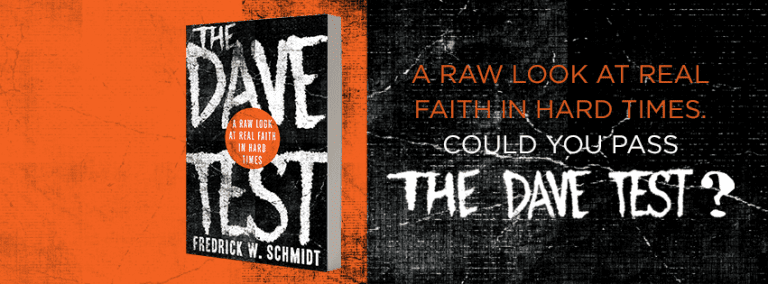 In caring for those who are in one of life’s difficult places, the most common question is, “What can I do?”
In caring for those who are in one of life’s difficult places, the most common question is, “What can I do?”
The desire to “do” something is entirely understandable. There are countless realities in our broken world that we wish were different, and – in a culture that emphasizes problem-solving and competence — it is natural to think in terms of what we can do. But, of course, there is often little or nothing that can be done. Many losses leave their mark.
Some years ago, now, I wrote a book about my brother’s battle with brain cancer called The Dave Test. Based upon his struggle to find a loving, supportive community, I asked 10 questions that I still believe are a real test of our ability to be present to the needs of others who find themselves in desperate places:
Can I say, “Life sucks”?
Can I give up my broken gods?
Can I avoid using stained-glass language?
Can I admit that some things will never get better?
Can I give up trading in magic and superstition?
Can I stop blowing smoke?
Can I say something that helps?
Can I grieve with others?
Can I walk wounded?
Can I be a friend?
Those questions were designed to help people reflect — not just on what we can do in order to be present to friends in hard places — but to reflect on the kind of people that we can be. The questions were also designed to shine a bit of light on the kind of faith that sustains us in hard places, because all too often what we offer to others is based upon distorted notions about God and prayer. I still believe those questions are a useful tool for self-reflection that both individuals, as well as faith communities can use to deepen their capacity for care and compassion.
At the root of effective efforts to care for others, however, is the capacity to be vulnerable and available to people in hard times. The doctrine of the Incarnation applies in specific and unique ways to the life and work of Jesus. But in another sense, the work of God is tirelessly incarnational, and our lives are an extension of God’s incarnational work, wherever others need “someone with skin on.”
We spend a good deal of time evading this sacred opportunity, distracting ourselves with important, but second order questions about the ways in which we can change our world. As important as those efforts might be, however, they are not a substitute for our availability to those with whom we share our lives in a more immediate fashion, and none of those changes can be accomplished without the individual and communal choice to be vulnerable and available.
Who in your circle of care has suffered loss or faced a crisis of some kind?
When was the last time you asked them about their experience, or about where they are now in that journey?
Did you listen carefully and attentively to the answers you were offered?
Did you manifest genuine interest by asking them questions that were organically tied to the concerns that they expressed?
Did you reassure them of your continued availability to them?
Do you continue to follow them in your prayers?
Where we can answer the first of these questions, we have an answer to both the question of what we can do — and solid clues to where we can become a part of Christ’s healing presence in the world.











